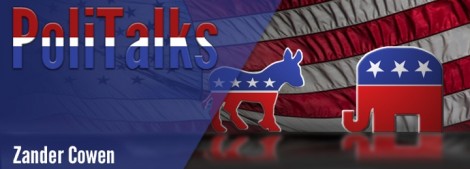
At that time, we were in the middle of a recession, and China was an emerging world power with impressive economic growth. We responded to China’s future dominance with hysteria and hostility. We picked at the foreign country for ‘stealing’ American jobs in the manufacturing sector. We attacked the Chinese for not playing by the rules. Undoubtedly, many Americans were scared. We felt threatened.
This kind of attention to China has come and gone, but still, those negative perceptions of the past remain in the hearts of many.
In a controversial ad during the 2012 election, Mitt Romney reminded us of our fear of China surpassing our economic prowess.
The ad blames Obama for when his auto task force suggested that Chrysler sell off a part of the company to Fiat, an Italian company, in 2009. When Fiat gained Chrysler, it also gained Jeep. The ad plays off of Fiat’s discussion to start building Jeeps again in China.
Terrifying, I know.
Now, a few years later from 2009, when Chrysler was sold to Fiat and the hysteria of China surpassing the United States settled down, China’s future is again in the spotlight.
China just revealed their new leader, Xi Jinping, who will replace Hu Jinatao as the Communist Party’s General Secretary. The media has paid much attention to forecasting what China will look like under this new leader. The United States may be hoping for a dramatic change of course for China, but many political pundits are much less optimistic.
See, Xi doesn’t have as much power as we are led to believe. About 70 percent of the standing party has been replaced, but Xi doesn’t choose most of his cabinet. Therefore, his power is severely limited.
Furthermore, decision-making requires a consensus among members of the Politburo Standing Committee, but many of them have their own self-interests and agendas.
Similar to a presidential cabinet, the Standing Committee is composed of representatives of different factions of China. Each member of the Standing Committee is responsible for a different section of the Chinese government. For example, one member oversees the cabinet while another runs domestic security.
Undoubtedly, what China can be proud of is the immense growth the country has maintained. China has become the world’s second-largest economy, trailing only the US. When, and if, this growth begins to wane, Xi will have to shift his focus to other issues, which will stretch far and wide. At this point the residents of China will be able to see past their economic success and focus on addressing the issues that the government has neglected during their period of growth.
I am hoping that this new wave of leadership will resolve some of these long-term problems. It will be good for us, the world and perhaps it might even make the two nations a little friendlier.
Here’s to hoping that China will be able to address the issues it has overlooked with its new form of government under Xi. I’m hopeful, are you?






























